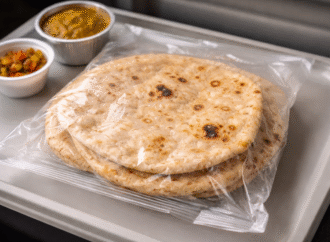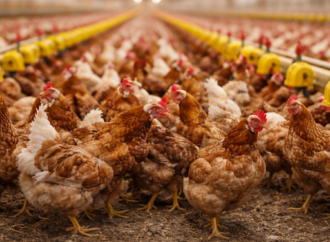Introduction
In a recent and alarming incident aboard an Indian Railways train, a passenger discovered an unexpected and unsavoury addition to their meal ordered through IRCTC (Indian Railway Catering and Tourism Corporation). The incident, captured on video and widely shared on social media, has raised serious concerns about food safety and hygiene standards.
The Shocking Discovery
The passenger, who was ordering from IRCTC for the first time, received a meal that included a popular Indian dessert—gulab jamun. However, upon opening the food packet, they were greeted by an unwelcome sight: a live cockroach crawling on the sweet treat. The video, posted by the user “Aggravating-Wrap-266” on Reddit, quickly gained attention and sparked outrage among travellers.
Reactions and Concerns
The incident has left passengers questioning the quality and safety of train food. Many expressed their distrust of IRCTC meals and advised fellow travellers to bring their food or snacks. Some even vowed to fast during their journeys rather than risk consuming railway catering. The video continues to circulate, prompting discussions about food handling practices and the need for better quality control.
Conclusion: Prioritizing Food Safety in Railway Catering
The incident of a live cockroach found in IRCTC food has ignited a crucial conversation about food safety and hygiene standards within the Indian Railways system. As we reflect on this shocking event, several key takeaways emerge:
- Transparency and Accountability: Passengers have the right to expect safe and hygienic meals during their train journeys. IRCTC must prioritize transparency by regularly sharing information about food quality checks, sourcing practices, and hygiene protocols. Additionally, accountability mechanisms should be in place to address any lapses promptly.
- Quality Control: The incident underscores the need for rigorous quality control measures. Regular inspections, surprise audits, and adherence to established guidelines are essential. IRCTC should collaborate with food safety authorities to ensure compliance with national and international standards.
- Training and Awareness: Proper training for kitchen staff, food handlers, and vendors is critical. They must understand the importance of hygiene, proper food storage, and safe handling practices. Additionally, passengers should be educated about their rights and encouraged to report any concerns promptly.
- Consumer Feedback: IRCTC should actively seek feedback from passengers. A robust feedback system can help identify issues early, allowing corrective actions to be taken swiftly. Encouraging passengers to share their experiences—both positive and negative—can drive continuous improvement.
- Alternative Options: While IRCTC aims to provide convenient onboard meals, passengers should have alternative options. Encouraging travellers to carry their food or promoting reliable food delivery services at railway stations can mitigate risks.
- Collaboration with Experts: IRCTC can collaborate with food safety experts, nutritionists, and public health professionals to enhance food safety practices. Learning from best practices in other countries can also inform improvements.
In conclusion, incidents like the one involving the live cockroach serve as wake-up calls. By prioritizing food safety, transparency, and passenger well-being, IRCTC can regain travellers’ trust and ensure that every meal served on Indian Railways meets the highest standards.
 Food Manifest
Food Manifest 


















